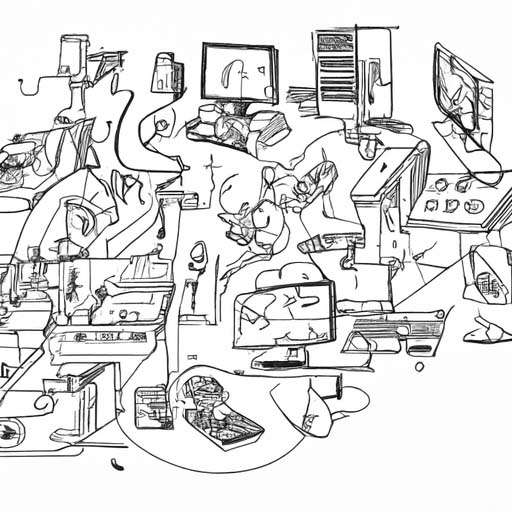The emergence of Cognitive Process Automation (CPA) is revolutionizing business operations by enhancing efficiency, accuracy, and cost-effectiveness. Unlike traditional Robotic Process Automation (RPA), CPA goes beyond rule-based tasks and addresses complex assignments that require human-like comprehension and decision-making.
Key Points:
- Cognitive Process Automation (CPA) goes beyond rule-based tasks and addresses complex assignments.
- Cognitive Process Automation (CPA) utilizes Natural Language Processing (NLP), machine learning algorithms, and cognitive reasoning.
- Traditional Robotic Process Automation (RPA) has challenges like high costs and limited scalability.
- AI co-workers, intelligent assistants, automate tasks, improve accuracy, and save costs.
- Implementing cognitive automation requires data quality, privacy and security measures, change management, and human-AI collaboration.
Cognitive Process Automation (CPA) utilizes various technologies to achieve its goals:
- Natural Language Processing (NLP): Allows systems to understand and interpret human language by analyzing text and sentiment.
- Machine Learning Algorithms: Empowers systems to learn from data patterns and make predictions and decisions. These algorithms undergo continuous training for adaptive optimization over time.
- Cognitive Reasoning: Utilizes AI techniques to analyze and interpret information for complex tasks, enabling informed decision-making and drawing conclusions.
Traditional Robotic Process Automation (RPA) has its own set of challenges. It incurs higher long-term costs, has limited scalability, and integrating new data can be time-consuming. CPA overcomes these challenges by offering increased efficiency, accuracy, and cost savings.
AI co-workers, which are intelligent AI assistants, automate repetitive tasks, resulting in improved productivity. They also minimize human error through machine learning and cognitive reasoning, leading to higher accuracy in decision-making. CPA enables organizations to reduce annual labor costs by 20 to 30%, delivering a triple-digit ROI.
Implementing cognitive automation requires careful consideration of best practices. Data quality should be prioritized through data cleansing and validation processes. Privacy and security measures should be in place to safeguard sensitive information. Change management is crucial to address organizational restructuring and employee resistance. Finally, fostering collaboration between humans and AI systems is essential, taking ethical considerations into account alongside AI capabilities.
In conclusion, Cognitive Process Automation is a game-changer that combines advanced technologies to replicate human-like understanding, reasoning, and decision-making. It empowers businesses to achieve unparalleled levels of efficiency, productivity, and innovation. With CPA, automation becomes a strategic advantage rather than just a tool.
